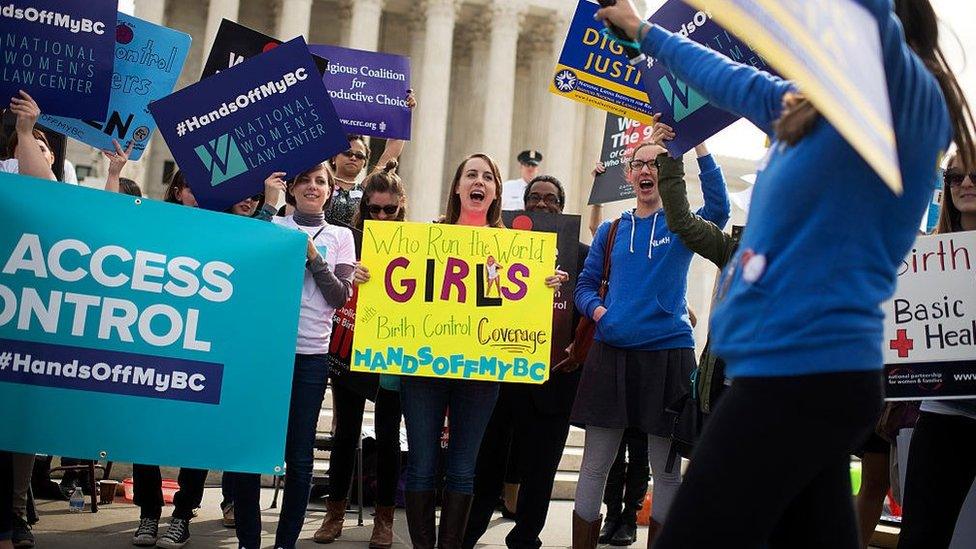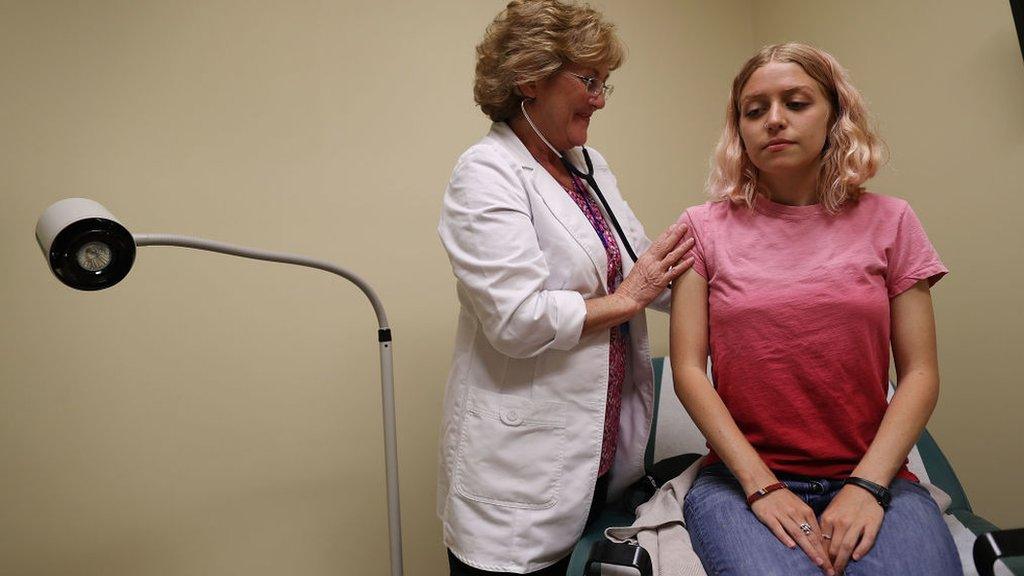Judge extends block on Trump birth control rules across US
- Published

The new Trump administration rules have drawn protests
A US federal judge has blocked new Trump administration regulations on birth control from applying across the entire country.
The rules allow employers and insurers to decline to provide birth control if doing so violates their "religious beliefs" or "moral convictions".
The rules were to come into effect nationwide from Monday.
But the judge in Philadelphia granted an injunction requested by attorneys general in Pennsylvania and New Jersey.
Judge Wendy Beetlestone ruled that the new rules would make it more difficult for many women to obtain free contraception and would be an undue burden on US states.
Her decision follows a similar verdict by a judge in California on Sunday. However, that verdict only covered 13 states and Washington DC.
Fifty-five million women benefited from the original Obama-era rule, which made companies provide free birth control.
Before taking office, President Donald Trump pledged to eliminate the requirement.

President Trump vowed to change the Obama-era rule when running for office
California attorney general Xavier Becerra said in a statement, external: "It's 2019, yet the Trump administration is still trying to roll back women's rights.
"The law couldn't be clearer - employers have no business interfering in women's healthcare decisions."
But the US Department of Justice said in court documents that the new rules defended "a narrow class of sincere religious and moral objectors" and stopped them from conducting practices "that conflict with their beliefs".
Mr Trump's rule change could force state governments to provide additional birth control coverage, Mr Becerra said, and pay health costs arising from unplanned pregnancies.

The judge blocked the new rule taking effect in 13 states and Washington DC
The mandate requiring birth control coverage had been a key feature of so-called Obamacare - President Obama's efforts to overhaul the US healthcare system.
While the requirement included a provision letting religious institutions forgo birth control coverage for their employees, President Trump's rule change widened the number of employers and insurers who could opt out, including on the grounds of "moral convictions".
Conservative and religious groups welcomed the shift, while civil rights and health groups have criticised the change.
- Published6 October 2017

- Published7 February 2017

- Published22 May 2017
